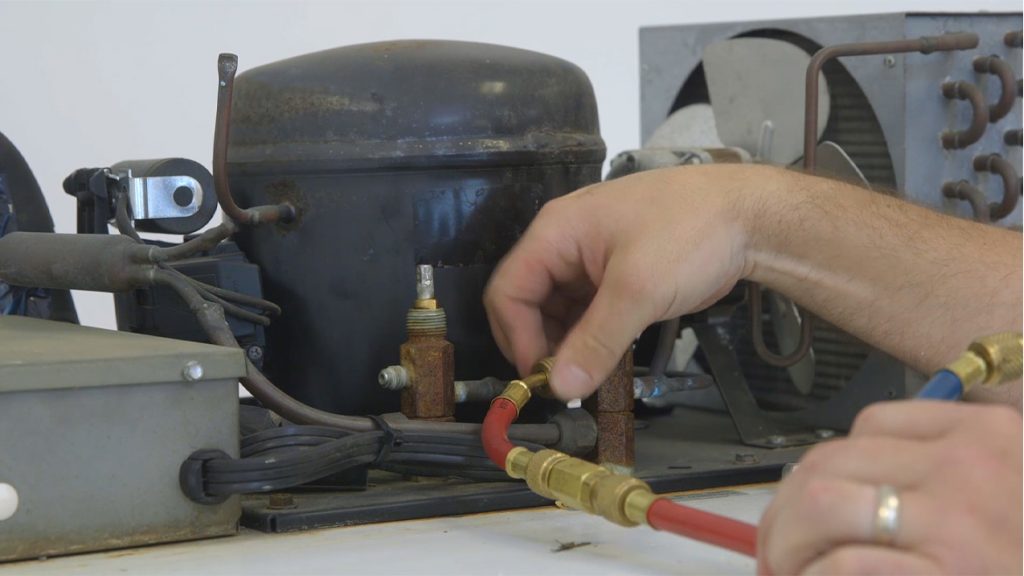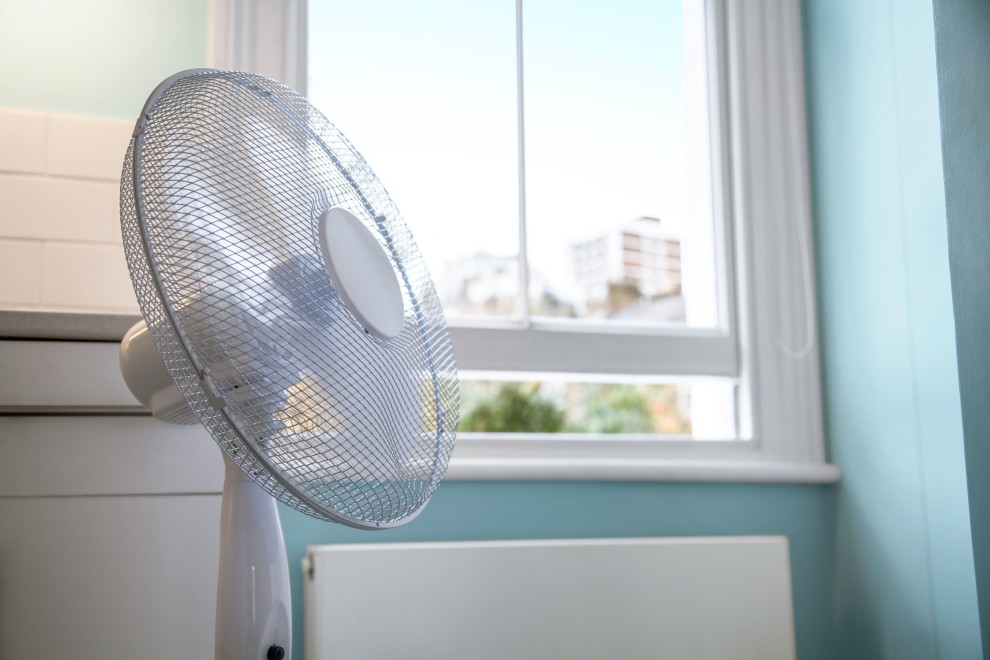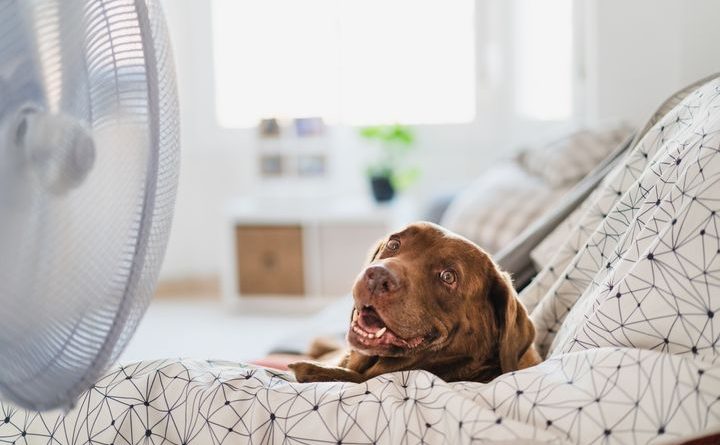Cool Down Your Home with These Easy Steps to Jump Start Your AC Compressor
Keeping your home cool during the summer months is not just a matter of comfort, it is also crucial for your health and well-being. Excessive heat can have negative effects on your body, leading to dehydration, heat exhaustion, and even heat stroke. It can also make it difficult to sleep, causing fatigue and irritability. Additionally, high temperatures can damage furniture, electronics, and other household items. Therefore, it is essential to have a properly functioning air conditioning (AC) system to maintain a comfortable and cool environment in your home.
Understanding Your AC Compressor: How Does It Work?
The AC compressor plays a vital role in the cooling process of your home. It is responsible for compressing the refrigerant gas and converting it into a high-pressure, high-temperature gas. This gas then flows through the condenser coil where it releases heat and becomes a high-pressure liquid. The liquid refrigerant then passes through an expansion valve, which reduces its pressure and temperature. Finally, the cool refrigerant flows through the evaporator coil where it absorbs heat from the indoor air, cooling it down before being circulated back to the compressor.
There are different types of AC compressors available, including reciprocating compressors, rotary compressors, and scroll compressors. Reciprocating compressors use pistons to compress the refrigerant gas, while rotary compressors use rotating blades. Scroll compressors have two spiral-shaped scrolls that compress the gas. Each type of compressor has its own advantages and features, such as energy efficiency, noise level, and durability. It is important to choose the right type of compressor for your specific cooling needs.
Signs of a Struggling AC Compressor: What to Look Out For
It is important to be aware of the signs that indicate your AC compressor may be struggling or failing. Some common signs include:
- Warm air: If your AC is blowing warm air instead of cool air, it could be a sign that the compressor is not functioning properly. This could be due to a refrigerant leak, a faulty compressor motor, or other issues.
- Loud noises: Unusual noises coming from your AC unit, such as grinding, squealing, or banging sounds, could indicate a problem with the compressor. These noises could be caused by worn-out bearings, loose parts, or other mechanical issues.
- Frequent cycling: If your AC unit is turning on and off frequently, it could be a sign that the compressor is struggling to maintain the desired temperature. This could be due to a faulty thermostat, low refrigerant levels, or other issues.
- High energy bills: If you notice a sudden increase in your energy bills without any changes in your usage patterns, it could be a sign that your AC compressor is not running efficiently. This could be due to a clogged air filter, dirty coils, or other maintenance issues.
Ignoring these signs and not addressing them promptly can lead to further damage to your AC system and potentially costly repairs. It is important to have a professional HVAC technician inspect and diagnose any issues with your AC compressor to ensure it is functioning optimally.
The Importance of Regular Maintenance: Keeping Your AC Compressor Running Smoothly

Regular maintenance is essential for keeping your AC compressor running smoothly and efficiently. Here are some benefits of regular maintenance:
- Improved performance: Regular maintenance helps keep your AC compressor in optimal condition, ensuring that it operates at peak performance. This means that it will cool your home more effectively and efficiently, saving you money on energy bills.
- Extended lifespan: Regular maintenance can help extend the lifespan of your AC compressor. By addressing any issues early on and keeping the system clean and well-maintained, you can prevent major breakdowns and costly repairs.
- Energy savings: A well-maintained AC compressor operates more efficiently, which translates to energy savings. By keeping the coils clean, changing air filters regularly, and ensuring proper airflow, you can reduce energy consumption and lower your electricity bills.
To maintain your AC compressor, it is important to schedule regular maintenance appointments with a professional HVAC technician. They will inspect and clean the coils, check refrigerant levels, lubricate moving parts, and perform any necessary repairs or adjustments. Additionally, you can also perform some maintenance tasks yourself, such as regularly changing air filters and keeping the outdoor unit free from debris.
Simple Steps to Jump Start Your AC Compressor: How to Cool Down Your Home Quickly
If you find yourself in a situation where your home is uncomfortably hot and your AC compressor is not cooling it down quickly enough, there are some simple steps you can take to cool down your home:
- Close curtains and blinds: Closing curtains and blinds during the hottest part of the day can help block out sunlight and keep your home cooler. You can also use reflective window coverings or install window film to further reduce heat gain.
- Use fans strategically: Place fans near windows or doorways to create a cross breeze and promote air circulation. You can also use ceiling fans or portable fans to create a cooling effect in specific rooms.
- Use a dehumidifier: High humidity levels can make your home feel hotter than it actually is. Using a dehumidifier can help remove excess moisture from the air, making it feel more comfortable.
- Use a programmable thermostat: A programmable thermostat allows you to set different temperature settings for different times of the day. This way, you can have your AC compressor cool down your home before you arrive back from work or wake up in the morning.
It is important to note that while these steps can help cool down your home temporarily, they are not a substitute for a properly functioning AC compressor. If you are experiencing ongoing issues with your AC unit, it is best to have it inspected and repaired by a professional HVAC technician.
Cleaning Your AC Compressor: Tips and Tricks for Optimal Performance
Cleaning your AC compressor is an important maintenance task that can help improve its performance and efficiency. Here are some tips and tricks for cleaning your compressor:
- Turn off the power: Before cleaning your AC compressor, make sure to turn off the power to the unit. This can be done by switching off the circuit breaker or disconnecting the power supply.
- Remove debris: Use a brush or vacuum cleaner to remove any debris, leaves, or dirt from the outdoor unit. Be careful not to damage the fins or coils while cleaning.
- Clean the coils: The coils on your AC compressor can become dirty and clogged over time, reducing its efficiency. Use a coil cleaner or a mixture of water and mild detergent to clean the coils. Rinse them thoroughly with water and allow them to dry completely before turning the power back on.
- Check the air filter: A dirty air filter can restrict airflow and reduce the efficiency of your AC compressor. Check the air filter regularly and replace it if it is dirty or clogged.
Regularly cleaning your AC compressor can help improve its performance, reduce energy consumption, and extend its lifespan. If you are unsure about how to clean your compressor or if you notice any issues while cleaning, it is best to consult a professional HVAC technician.
Upgrading Your AC Compressor: Is It Time for a New Unit?
There are several signs that indicate it may be time to upgrade your AC compressor:
- Frequent breakdowns: If your AC compressor is constantly breaking down and requiring repairs, it may be more cost-effective to invest in a new unit. Constant repairs can add up quickly and may not be worth the hassle.
- Inefficient cooling: If your AC compressor is no longer able to cool your home effectively, it may be a sign that it is nearing the end of its lifespan. Upgrading to a newer, more efficient unit can help improve cooling performance and reduce energy consumption.
- High energy bills: If you notice a significant increase in your energy bills without any changes in your usage patterns, it could be a sign that your AC compressor is not running efficiently. Upgrading to a more energy-efficient unit can help lower your electricity bills.
- Old age: AC compressors typically have a lifespan of around 10-15 years. If your unit is approaching or exceeding this age, it may be time to consider upgrading to a newer model.
Upgrading to a new AC compressor can offer several benefits, including improved cooling performance, energy savings, and increased comfort. It is best to consult with a professional HVAC technician who can assess your cooling needs and recommend the right unit for your home.
Energy-Efficient Cooling: How to Save Money on Your Electricity Bill
Keeping your home cool during the summer months can lead to higher electricity bills. However, there are several ways you can reduce your energy consumption and save money:
- Set the thermostat wisely: Set your thermostat at the highest comfortable temperature during the summer months. Each degree lower can increase energy consumption by 3-5%. You can also use a programmable thermostat to automatically adjust the temperature based on your schedule.
- Use ceiling fans: Ceiling fans can create a cooling effect and make you feel more comfortable without using as much energy as an AC compressor. Use ceiling fans in conjunction with your AC unit to circulate cool air throughout the room.
- Keep windows and doors sealed: Make sure windows and doors are properly sealed to prevent cool air from escaping and warm air from entering. Use weatherstripping or caulking to seal any gaps or cracks.
- Use natural ventilation: Take advantage of cooler evening temperatures by opening windows and using natural ventilation to cool down your home. This can help reduce the need for your AC compressor during the cooler hours of the day.
- Use energy-efficient appliances: Energy-efficient appliances, such as refrigerators, washing machines, and dishwashers, can help reduce overall energy consumption in your home. Look for appliances with the ENERGY STAR label, which indicates that they meet strict energy efficiency guidelines.
By implementing these energy-saving tips, you can reduce your electricity bills while still keeping your home cool and comfortable during the summer months.
Alternative Cooling Methods: Exploring Other Ways to Keep Your Home Cool

While an AC compressor is the most common way to cool down a home, there are alternative cooling methods that can be effective in certain situations. Here are some options to consider:
- Fans: Fans can provide a cooling effect by circulating air and creating a breeze. Ceiling fans, floor fans, and table fans can all be used to cool down specific areas of your home. They are also more energy-efficient than an AC compressor.
- Window coverings: Using window coverings, such as blinds, curtains, or shades, can help block out sunlight and reduce heat gain in your home. Choose light-colored coverings or reflective materials to further enhance their cooling effect.
- Evaporative coolers: Evaporative coolers, also known as swamp coolers, use water evaporation to cool down the air. They work best in dry climates where humidity levels are low. Evaporative coolers are more energy-efficient than traditional AC compressors but may not be as effective in humid environments.
- Heat-reflective roof coatings: Applying a heat-reflective coating to your roof can help reduce heat absorption and keep your home cooler. These coatings reflect sunlight and prevent it from being absorbed into the building, reducing the need for cooling.
It is important to note that these alternative cooling methods may not be suitable for all homes or climates. It is best to consult with a professional HVAC technician to determine the most effective cooling solution for your specific needs.
Conclusion: Keeping Your Home Comfortable and Cool All Summer Long
In conclusion, keeping your home cool during the summer months is essential for your health, comfort, and overall well-being. Excessive heat can have negative effects on your body and can also damage furniture and other household items. Understanding how your AC compressor works and recognizing the signs of a struggling unit can help you address any issues promptly and prevent further damage.
Regular maintenance is crucial for keeping your AC compressor running smoothly and efficiently. Cleaning the compressor, changing air filters regularly, and scheduling professional maintenance appointments can help improve performance, extend the lifespan of your unit, and reduce energy consumption.
If it is time to upgrade your AC compressor, consider investing in a newer, more energy-efficient unit. This can help improve cooling performance, lower energy bills, and increase overall comfort in your home.
In addition to using an AC compressor, there are alternative cooling methods that can be effective in certain situations. Fans, window coverings, evaporative coolers, and heat-reflective roof coatings are all options to consider.
By taking action to maintain your AC compressor and exploring alternative cooling methods, you can keep your home comfortable and cool all summer long while also saving money on energy bills.
